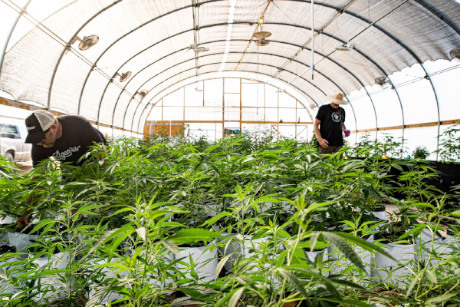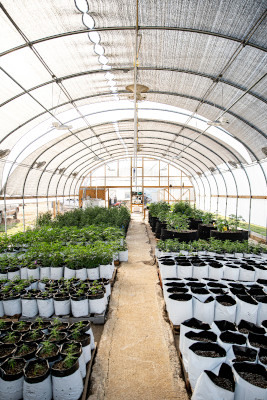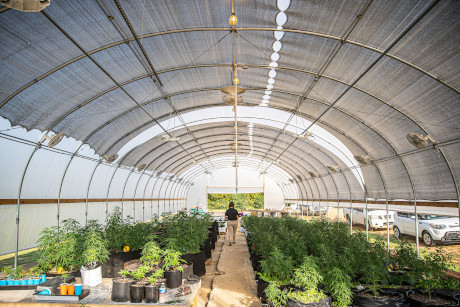Brad Fusett is the co-founder and COO of Green Remedies Group. He has a master’s degree in soil chemistry and an honorary doctorate in agricultural intelligence and data analytics. “We are vertically integrated, and we have hemp farms, medical and recreational centers, but also CBD and CBG refineries. The main company I focus on is Indigenous Seeds: this is a genetic and consulting company; I basically consult globally, but I also create genetics and do phenotype hunting.”

The main difference between the cannabis industry and all the others is that cannabis can be used in a vast array of different products. “The moment cannabis is added to a product, that becomes more expensive,” Brad explains. “And there are a lot that is currently commercially available – dried flowers is just the top flower production, and there are so many ways to do this.”
The uniqueness of cannabis
Even though cannabis is a very profitable crop, growing it is not the same as growing food in controlled environments. “The operational capital for cannabis businesses is far higher than other horticultural businesses,” he says. “On top of this, there is the hurdle of regulations, which here in the US are different in every state. Those two things sum up the challenges of the industry. The other challenge is the inexperience: it takes a lot of people to run these kinds of operations, and you have to invest time in them, train them, nurture them, as they are your biggest asset: they are the key for getting things done the way you want and how you want.”
Added to the complexity of the industry as a whole, there is the growing side, which is another beast on its own. “There are a lot of different ways you can grow a plant, and cannabis is no different,” Brad points out. “I have grown it in every possible way: hydroponics, aeroponics, soil, living soil, rich soil outdoors, in a dry climate; every situation comes with its challenges, and all of them come with the growing techniques suitable for a specific ecosystem and environment.”
“In most of my farms, we grow organic hemp used for making medicines. I typically use my living soil, and I also expect my people to know nutrient values and all the intricacies of what’s going on in the plant. At the same time, I always found greenhouses to be the better option. Yes, indoors allows for a super clean, medical lab-grade production, but the operational cost and the environmental impact are quite high.”
Indoors vs greenhouse
Brad indeed further explains that indoors, the cost per pound is the highest it can be; yet, as you go into greenhouses, it is possible to drastically reduce the operational cost considerably. “The greenhouse provides you with an environment that is suitable for growing using, for instance, the wind to cool the greenhouse, and using the sunlight instead, thus lowering the input cost.”

Ultimately, it all comes down to the type of product that a cannabis operation aims for. “I look at where that plant is going to be used and for what, and fine-tune the growing according to that,” Brad explains. “This has proven to be extremely easy and feasible thanks to PL lights, as they have the ability to extend my season enough: in the greenhouse where I operate, I can do 5 and a half harvests a year.”
“I started using PL lights back in the 90s,” Brad says. “I have designed many cultivation facilities throughout the US, and I always recommend them. The main reason is that the performance is really top-notch: the last thing you want is lights to fail on you, and PL has a spectacular record of no failure. There is a university for which I did some consulting, and they have installed PL lights back in the 90s. It just amazes me that those things have never been replaced and are still there working perfectly.”
This is especially crucial for an industry that is going to be more diversified. “We are in line to be an MSO that will probably go into a bigger group later on,” Brad says. “Aside from this, we are going to see more acquisitions and mergers within the cannabis space, especially as companies move across the states with more legalization coming online. When that is going to happen, cannabis is going to be branded very specifically, and in so doing, you have to grow that plant's rights, and that needs to be done consistently.”
For more information: P.L. Light Systems
P.L. Light Systems
1.800.263.0213
info@pllight.com
www.pllight.com
